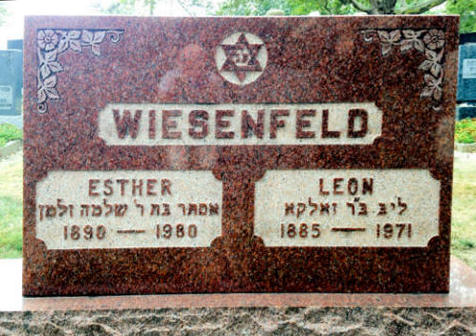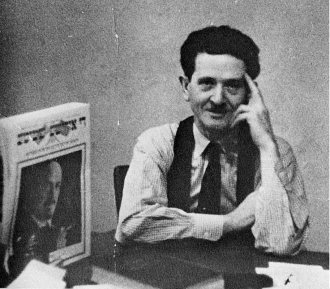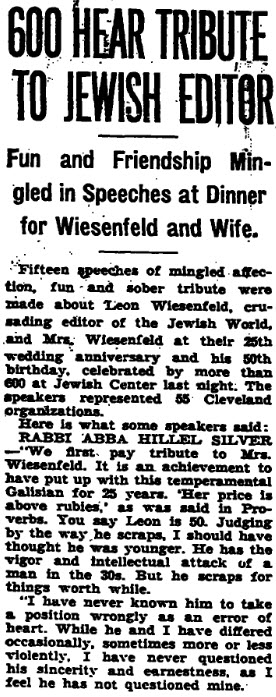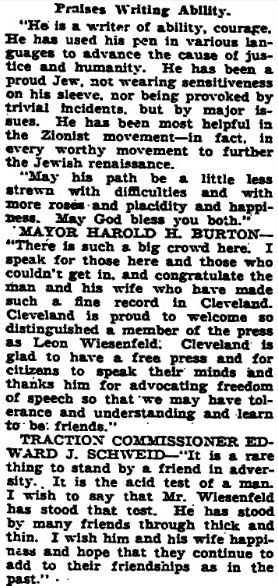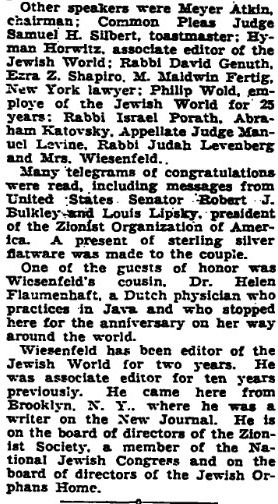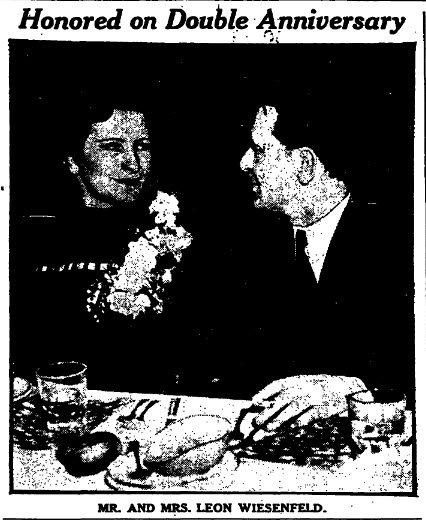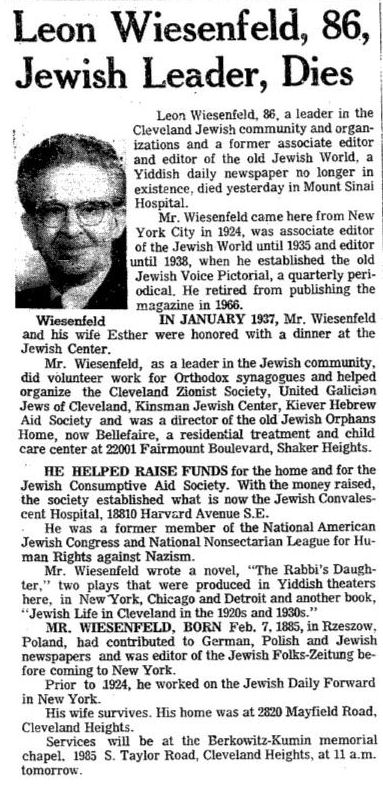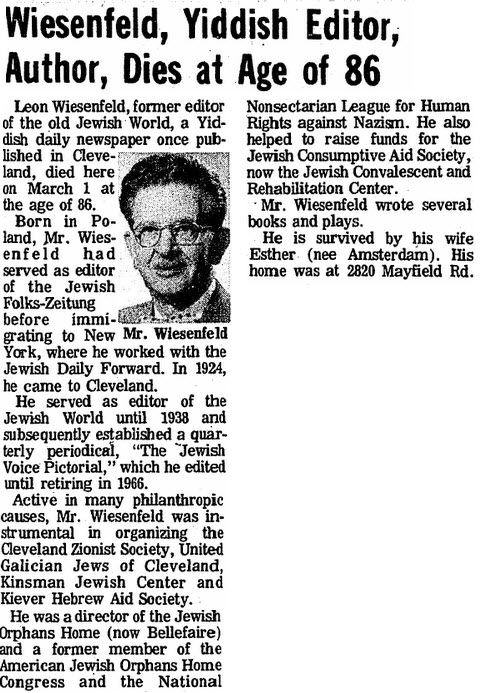|
Leon
Wiesenfeld was more than a journalist. He championed the
Jewish people and opposed their enemies, locally,
nationally and foreign.
He saw the dangers
of Nazism early and fought it fiercely.
He campaigned for an
inclusive Jewish community, with cooperation between the
“assimilated Jews” and the Yiddish-speaking Jews he
wrote for who were the majority of Cleveland’s Jews
in the 1930s.
He worked to
establish what became The Jewish Community Council, a
federation of Jewish organizations and synagogues that
would later merge with the Jewish Welfare Federation.
He urged his readers to give to the Jewish Federation's
annual campaign.
A passionate Zionist, he supported Rabbi Abba Hillel
Silver. An author of plays in Yiddish, he also advocated
for the Yiddish theater.
Leon
Wiesenfeld (February 2, 1885 – March 1, 1971) was born
Lieb Wiesenfeld in Rzeszow, Poland. He wrote for Polish and German
publications before coming to America. He worked briefly
in New York for Abraham Cahan's Jewish Daily Forward
and for the New Journal in Brooklyn
before coming to Cleveland in 1924.
For 10 years
he was the associate editor of the Yiddishe Velt
(The Jewish World), Cleveland's principal
Yiddish-language newspaper, before becoming its editor
in 1934. In 1938 he left to establish an English-Yiddish
weekly Die Yiddishe Stimme (The Jewish Voice)
which failed after about a year.
He then started an English
language annual, Jewish Voice Pictorial,
which endured into the 1950s. (From
the entry in the Encyclopedia of Cleveland History.)
Like most of
the Jewish community, Leon and his wife Esther kept
moving east. In 1930 they lived
on East 55th, near the offices of The Jewish World.
The 1940 census (see below) shows them at 1289 East
Boulevard.
Living with them
was 21 year old Sandra Amsterdam from Poland, the
youngest daughter of Esther's
brother Adolf who had sent her here for safety
in late December 1938. Around 1946 they moved to a two story apartment
building
at the northeast corner of
Mayfield and
Coventry Roads. Leon's obituary in 1971 shows
an address in a larger building across the street.
A dinner on Sunday evening January
10, 1937 at the Cleveland Jewish Center
celebrated Leon's 50th birthday and the couple's 25th
wedding anniversary. It was attended by 600 persons
representing 55 organizations. (see clipping).
In 1965, then 80, Wiesenfeld
published essays he had written for his
Jewish Voice Pictorial as
Jewish Life in Cleveland in the 1920s
and 1930s, subtitled
The Memoirs of a Jewish
Journalist. He also wrote a novel.
Wiesenfeld would be a fascinating subject of a
biography, but at this time none is known.
Leon died in
1971, his wife Esther in 1980.
|
